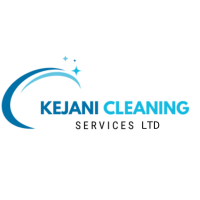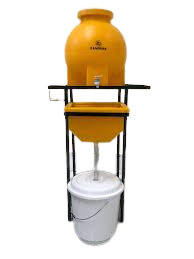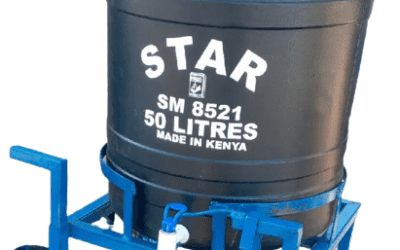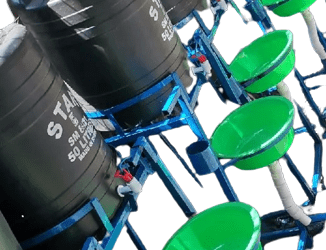Introduction
Whether you’re hosting an event, running a food business, managing a construction site, or operating a school, proper hygiene is non-negotiable. A critical component of any hygiene setup is the wash station, also known as a handwashing station. In this blog post, we explore what a wash station is, how it works, where it is used, and why it’s essential for public health, particularly in high-traffic or mobile environments like those found across Kenya.
What is a Wash Station?
A wash station is a portable or fixed setup designed to facilitate handwashing, dishwashing, or general cleaning activities. These stations are equipped with clean water tanks, wastewater collection containers, soap dispensers, and hand-drying options like paper towels or hand dryers.
Wash stations are especially vital in areas that lack permanent plumbing or running water—like outdoor events, construction sites, food vending stalls, farms, or remote schools.
What is a Handwashing Station?
A handwashing station is a specific type of wash station designed exclusively for washing hands with soap and clean water. It’s a crucial hygiene facility intended to reduce the spread of germs, viruses, and bacteria—helping to prevent diseases such as cholera, COVID-19, dysentery, and other infections transmitted via poor hand hygiene.
Handwashing stations are commonly used in:
-
Schools and universities
-
Restaurants and food stalls
-
Hospitals and health clinics
-
Markets and supermarkets
-
Offices and construction sites
-
Outdoor events like weddings or political rallies
Types of Wash Stations and Handwashing Stations
1. Portable Handwashing Stations
-
Often made from durable plastic.
-
Include a foot pump or hand lever to dispense water.
-
Have separate tanks for clean and wastewater.
-
Ideal for mobile use in events, outdoor markets, or construction sites.
2. Wall-Mounted Handwashing Units
-
Connected to a water line.
-
Often include an automatic soap dispenser and hand dryer.
-
Ideal for permanent installation in restrooms or kitchens.
3. Foot-Operated Handwashing Stations
-
Users press a foot pedal to release water.
-
Reduces hand contact and improves hygiene.
-
Popular in schools, hospitals, and COVID-19 response sites.
4. Commercial Sink Units
-
Designed for food service industries.
-
May include double sinks, sanitizer dispensers, and hand towel slots.
-
Used in hotel kitchens, restaurants, and butcheries.
5. Multi-user Handwashing Stations
-
Designed for high-traffic areas.
-
Allow 3–5 people to wash hands at the same time.
-
Found in schools, factories, and large events.
Key Components of a Good Handwashing Station
-
Clean Water Supply – Either piped or stored in a tank.
-
Soap Dispenser – Liquid, foam, or bar soap options.
-
Hand Drying Mechanism – Paper towels, air dryers, or cloth towels.
-
Wastewater Collection – A bucket or drainage system to prevent puddling.
-
Touch-Free Operation – Foot pedals or automatic sensors for better hygiene.
Benefits of Wash Stations and Handwashing Stations
-
✅ Improved Hygiene and Health
-
Reduces disease transmission in public and shared spaces.
-
-
✅ Promotes Compliance with Health Guidelines
-
Meets government or health regulation standards, especially in the food and health industries.
-
-
✅ Convenient and Mobile
-
Especially helpful in outdoor and temporary setups.
-
-
✅ Cost-Effective
-
Cheaper to set up and operate than installing permanent plumbing.
-
-
✅ Scalable
-
Can be customized to serve any number of users depending on location and need.
-
Where to Use Wash Stations in Kenya
-
Construction Sites: To ensure worker hygiene and compliance with NEMA and OSHA standards.
-
Events and Festivals: To promote sanitation in temporary venues.
-
Schools and Churches: To instill regular handwashing habits in children and congregants.
-
Hotels and Restaurants: To comply with MOH guidelines and improve customer trust.
-
Health Clinics and Pharmacies: To reduce cross-infection between patients and staff.
-
Offices and Co-Working Spaces: Especially during flu seasons or pandemics.
-
Public Markets: A must-have where food and money are frequently exchanged.
Frequently Asked Questions (FAQs)
Q1: Can I rent a handwashing station for an event?
Yes! Many companies in Kenya, including Kejani Cleaning Services Limited, offer rental options for portable handwashing units.
Q2: How often should water tanks be refilled?
Depending on usage, tanks may need to be refilled daily or even multiple times per day during large events.
Q3: Are there handwashing stations for children?
Yes. There are kid-friendly versions that are shorter and easier to use for young learners, commonly used in ECDs and primary schools.
Q4: Do handwashing stations require electricity?
Not always. Many operate with manual foot pedals and don’t need power, making them ideal for remote and off-grid locations.
Q5: Can Kejani Cleaning help set up handwashing stations in bulk?
Absolutely. We offer end-to-end supply, installation, and maintenance support for institutions and organizations across Kenya.
Conclusion
A wash station or handwashing station is more than just a convenience—it’s a public health necessity. In a world increasingly aware of hygiene risks, having the right facilities in place for handwashing can make a big difference in protecting lives and maintaining high cleanliness standards.
📞 Ready to Install Wash Stations in Your Business or Event?
Kejani Cleaning Services Limited supplies and installs high-quality wash and handwashing stations across:kenya
📞 Call/WhatsApp us: +254 115 887 085
🌐 Visit: www.kejanicleaning.co.ke
Let us help you build a cleaner, healthier space.




0 Comments